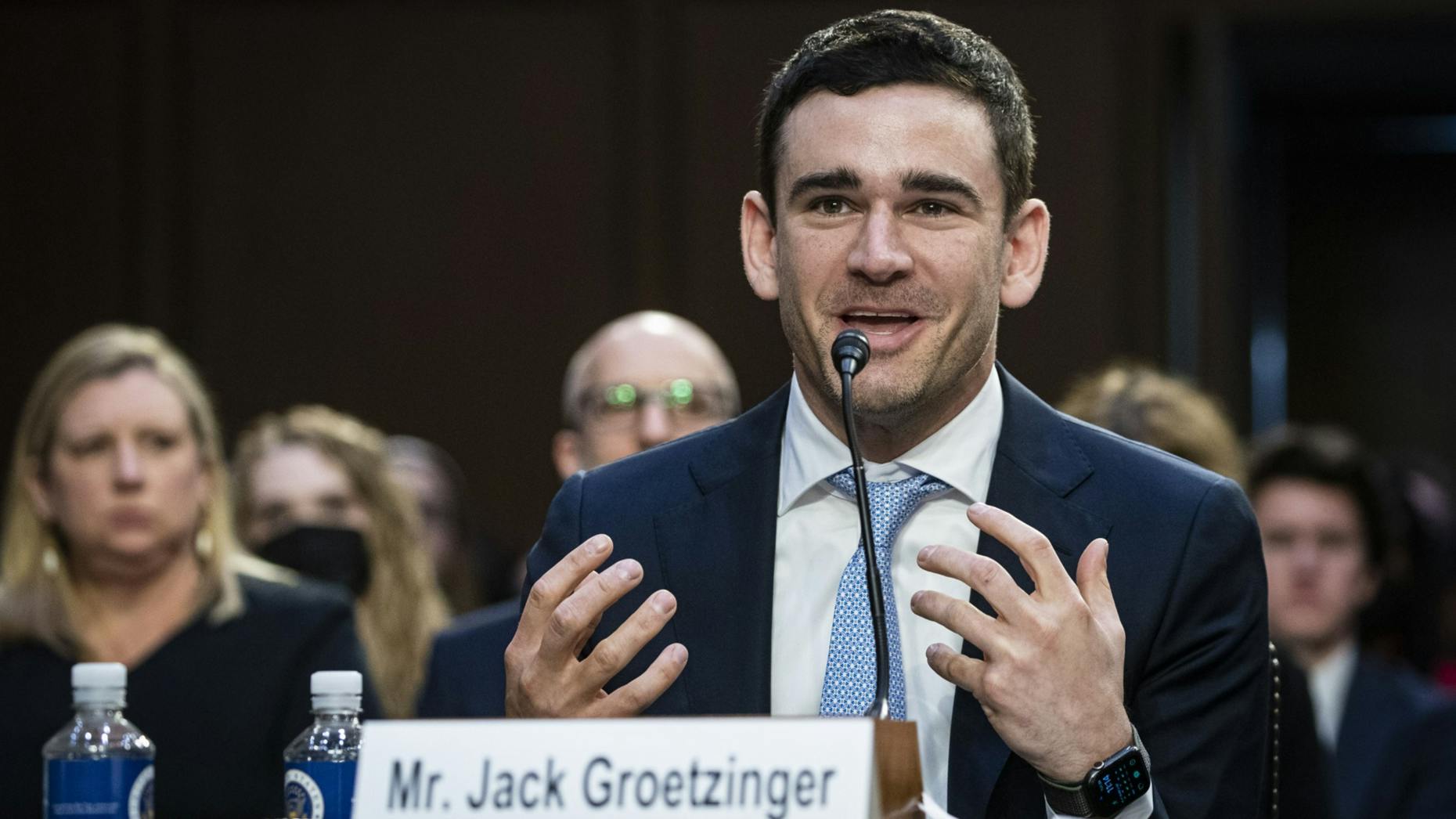SeatGeek Files Confidentially for IPO
 SeatGeek CEO Jack Groetzinger speaks to Senators during a hearing that revolved around rival Ticketmaster's competitive practices earlier this year. Photo by Bloomberg.
SeatGeek CEO Jack Groetzinger speaks to Senators during a hearing that revolved around rival Ticketmaster's competitive practices earlier this year. Photo by Bloomberg.Event ticketing company SeatGeek filed confidentially with regulators this month for an initial public offering, people familiar with the matter said, adding itself to a long list of firms aiming for IPOs once market conditions improve.
The Takeaway
Powered by Deep Research
The New York-based company is hatching listing plans as a post-pandemic boom in live events helps bolster its business, which people use to buy and sell sports and concert tickets. SeatGeek, which makes most of its money on ticket transaction fees, expects to pull in more than $500 million in revenue this year, one of the people said. That would represent a roughly tripling of sales from 2021 that the company reported in a filing last year.
The filing with the Securities and Exchange Commission doesn’t guarantee that the company will go public this year, one of the people cautioned. There is a glut of companies looking to go public, especially those that have been operating privately for a decade or more, but market conditions haven’t been hospitable. Steep interest rate hikes and the impacts of the Silicon Valley Bank collapse have cooled most tech firms’ appetites to go public this year, said one IPO adviser working with several tech companies.
See The Information’s Tech IPO Tracker here.
This would be SeatGeek’s second effort in as many years to go public. SeatGeek tried for a public listing last year by merging with a special-purpose acquisition company run by Major League Baseball executive Billy Beane. But the deal fell through as investors soured on money-losing tech companies, particularly those merging with SPACs. SeatGeek, which was burning cash, instead raised $238 million privately at a roughly $1 billion valuation, led by long-time investor Accel.
The company reported last year in an SEC filing associated with its failed SPAC merger that it didn’t expect to be profitable, excluding interest, taxes, depreciation, amortization and stock-based compensation, until 2024. It expected to spend half of the revenue it took in on sales and marketing expenses this year, according to the filing.
The company sits in an increasingly competitive industry. SeatGeek’s larger rival StubHub also has been planning to go public. Industry giant Ticketmaster and its parent company Live Nation, increasingly under scrutiny for high fees, has also been expanding into secondary ticket sales.
The firms also compete to win exclusive deals to re-sell tickets for arenas and sports leagues. SeatGeek last month replaced StubHub as Major League Baseball’s ticket marketplace. But in January, Ticketmaster replaced SeatGeek as the ticketing vendor for Barclays Center in Brooklyn.
The 14-year-old company also counts Wellington Management and Technology Crossover Ventures as investors.
Cory Weinberg is deputy bureau chief responsible for finance coverage at The Information. He covers the business of AI, defense and space, and is based in Los Angeles. He has an MBA from Columbia Business School. He can be found on X @coryweinberg. You can reach him on Signal at +1 (561) 818 3915.